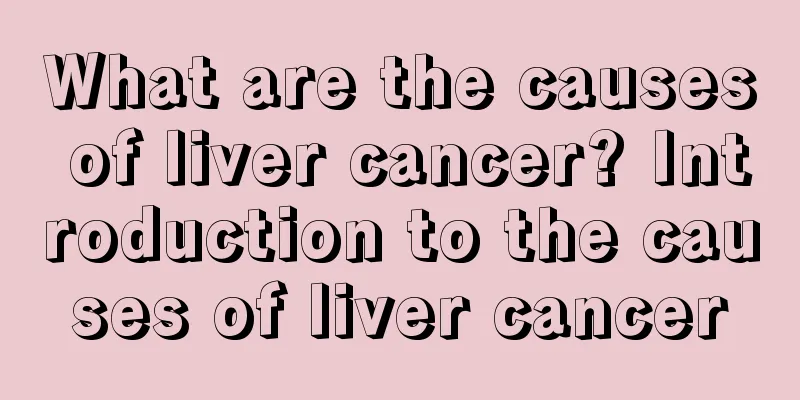6 reasons why your gums bleed

|
There are quite a lot of people who find bright red blood on their toothbrushes and in the white foam of toothpaste when they brush their teeth; they even leave bloody tooth marks on fruits and steamed buns when they eat fruits and bite steamed buns; even after kissing their lovers hard, they will feel a bloody taste in their mouths. What disease is this a signal of? So what are the causes of bleeding gums? Reason 1: There are many reasons for bleeding gums, which can generally be divided into two types: local reasons and systemic reasons. Local gingival bleeding is common in patients with gingivitis or periodontitis. In addition, gingival hyperplasia can also cause local gingival bleeding. Reason 2: There is a shallow gingival groove between the gum edge and the teeth. When the mouth is not clean, a lot of decayed, softened and sticky food residues will often accumulate in the gingival groove, mixed with a large number of bacteria, forming soft dental plaque. Over time, coupled with the minerals separated from the saliva deposited in the dental plaque, it will form hard dental calculus, also called tartar. These soft and hard dental plaques (i.e. tartar) constantly stimulate the gums, and the continuous invasion of bacteria will cause gingivitis, manifested as red and swollen gums and ulcers on the gum margins. Just the slightest touch will cause bleeding. Reason 3: In addition to gingivitis (or periodontitis) which can cause local bleeding of the gums, gingival hyperplasia can also cause local bleeding of the gums. Some young people have swollen and raised gums due to unclean oral cavity, and they feel a softer feeling when pressing the gums with their fingers. Some of these hyperplastic gums can cover 1/3 to 1/2 of the tooth surface, and can cover plaque and tartar under the hyperplastic gums, thus causing frequent gingival bleeding. Taking drugs to treat epilepsy can also cause gingival hyperplasia. Reason 4: Some people like to brush their teeth with a large-headed, hard-bristled toothbrush, especially brushing horizontally, which is more likely to cause local bleeding. In addition, improper use of toothpicks, unreasonable dentures, sharp stimulation from the edges of caries, and hard food residues that are embedded in the teeth can also cause local gingival bleeding. Reason 5: Under the same conditions, people who have been deficient in vitamin C for a long time are more likely to have bleeding gums after encountering the above-mentioned stimulation than ordinary people due to increased fragility and permeability of the capillaries in their gum tissue. Eating more vegetables can increase the body's intake of vitamin C. Reason six: Among those who suffer from bleeding gums, some suffer from systemic diseases. This type of bleeding gums is often a sign of systemic diseases, such as hemophilia, hemorrhagic purpura, thrombocytopenia, etc. There are also some systemic diseases in the late stages that can cause low coagulation function or severe anemia, and symptoms of bleeding gums, such as cirrhosis of the liver, hypersplenism, late-stage nephritis, disseminated lupus erythematosus, etc. Bleeding gums are also a prominent symptom of scurvy. |
<<: Ten tips to pick out thin-skinned and sweet watermelons
>>: 4 ways to remove toxins from the body without taking medicine
Recommend
Patients with cardia cancer must pay attention to their main symptoms
As a common tumor disease, cardia cancer can caus...
What is the reason for a white line on each side of the mouth?
When brushing your teeth, especially when looking...
The role of salt water
Salt is an indispensable condiment in our daily l...
What are the diagnostic criteria for fibroids
Many patients with fibroids do not know what the ...
What are the acupuncture points on the human abdomen?
People of a certain age all know the importance o...
What is triple-negative breast cancer
What is triple-negative breast cancer? Molecular ...
Will a 23-year-old who smokes for 6 years get lung cancer?
A 23-year-old who has smoked for 6 years does not...
What should I do if my hands are soaked in pepper water?
When cooking, we often need to handle chili peppe...
How long is the best time to cook mutton in a pressure cooker
The most important thing about stewing mutton is ...
It is the right time to take supplements in winter. One piece of donkey-hide gelatin can cure all diseases
The organs of the human body are just like people...
Can pregnant women eat chocolate? How much to eat
Many people believe that chocolate is a sugar foo...
How to read lung cancer CT report What are the early symptoms of lung cancer
CT, X-ray and other imaging examinations are the ...
Are there any symptoms of late-stage prostate cancer? Difficulty in urination is very obvious
For male friends, prostate cancer is a highly pre...
Can pancreatic function be restored
Most people only know that diabetes is a serious ...
How to remove stains from the wall
After living in a house for a long time, various ...









